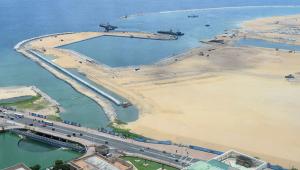By Nick Mann | 27 February 2012
Developing countries must do more to create the right business conditions to raise the capital needed for major public-private infrastructure projects, according to the World Bank Institute.
Clive Harris, manager for public-private partnerships at the think-tank, told a conference on PPPs last week that action was needed because banks were less willing to finance such projects due to the global economic crisis. The number of developing countries beginning new PPP projects in the first half of 2011 was the lowest since the early 1990s, World Bank figures show.
Harris said: ‘With these weakening economic conditions, developing countries have less fiscal and monetary space for remedial measures than they did in 2008/09.
‘They need to prepare for the possibility of sources of financing drying up while creating the optimal business conditions for delivery of their infrastructure programmes.’
In particular, governments should establish governance frameworks to help with selecting, developing, tendering and managing PPP projects. These frameworks should allow for openness and transparency of public sector budgets and private sector contracts, which were ‘crucial’ for addressing corruption and fraud.
Development banks were also urged to play a major role, the conference concluded. They should promote good practice in disclosing information on PPP contracts and involving parliamentarians and national audit authorities so they provide oversight of projects.
Philip Erquiaga, director general of the Asian Development Bank’s private sector operations department, said: ‘PPPs are facing new and greater challenges due to the global financial crisis, increased regulation and because some banks are reluctant to provide funding, particularly long-dated debt.
‘Multilateral development banks can play a pivotal role by helping governments find the right PPP structure and mobilise commercial finance.’
The conference, which was held in Switzerland, was co-organised by the World Bank Institute, the United Nations Economic Commission for Europe and the Asian Development Bank.













